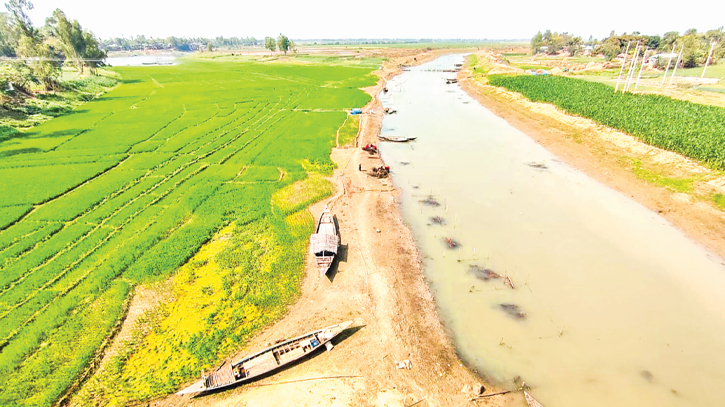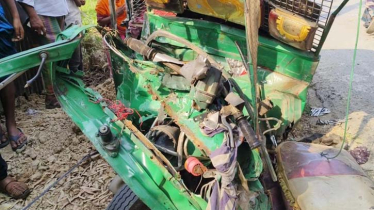
Photo: Collected
The Pabna district administration has sparked controversy by deciding to lease 31 parts of 10 rivers for fish farming, under the guise of reservoirs, defying the Ministry of Lands' instructions.
Deputy Commissioner Asaduzzaman, also the President of the District Reservoirs Management Committee, issued a notice on January 14 inviting fishermen to apply for the lease, which spans three years. These 31 parts include segments of various rivers like Ichamati, Padma, Baral, Chiknai, Chandravati, Atrai, Gumani, Ruknai, Gohala, and Kageshwari.
The Ministry of Land has previously banned leasing rivers, with a letter dated March 10, 2010, sent by senior secretary Shah Rezwan to district administrators. The ban followed a decision made during a Ministry of Lands meeting on January 20, 2010, which aimed to halt all river leases for fish farming. This move has drawn criticism from environmentalists and river protection activists.
Mizanur Rahman, member secretary of the Baral Raksha Andolan Committee, expressed dismay at the district administration's actions, noting the detrimental impact on river ecosystems. "The sudden tender for river lease disregards the Ministry's directive and poses a grave threat to our river ecosystems," Rahman stated, echoing the sentiments of many environmental activists in the region.
Abdul Hamid Khan, general secretary of the Pabna district committee of Bangladesh Environment Movement (Bapa), echoed these concerns, emphasizing the adverse effects of river leasing on both aquatic biodiversity and local communities dependent on river resources for their livelihoods. Khan condemned the district administration's decision, calling for its immediate reversal to prevent further environmental degradation.
Mahbubul Alam, president of the Ichamati Raksha Andolan Committee, voiced apprehension over the potential consequences for the Ichamati river, a lifeline for many communities in the region. Alam highlighted ongoing efforts to preserve the river's integrity, citing government initiatives aimed at river restoration and conservation. He questioned the compatibility of the leasing decision with broader environmental conservation goals, urging authorities to prioritize river protection over short-term economic gains.
In response to mounting criticism, Asaduzzaman defended the decision, citing a pre-existing list of registered water bodies eligible for lease. He assured that areas crucial for maintaining river flow would be excluded from the lease arrangement, although this assurance has done little to assuage concerns among environmentalists and legal experts.
In a significant legal development, the Bangladesh Environmental Law Association (BELA) has issued a legal notice to twelve individuals, including the District Commissioner of Pabna, demanding the suspension of the lease initiative. BELA argues that the lease violates existing laws protecting public water bodies and infringes upon the rights of river-dependent communities. Tanmoy Kumar Sanal, BELA's Rajshahi Division Coordinator, affirmed the organization's commitment to pursuing legal action if necessary, emphasizing the importance of upholding environmental laws and court rulings in safeguarding natural resources.
The controversy surrounding the illegal river lease in Pabna underscores the complex interplay between economic interests and environmental conservation. It serves as a stark reminder of the urgent need for sustainable resource management practices that prioritize the long-term health and integrity of our natural ecosystems. As the debate rages on, all eyes are on the authorities to take swift and decisive action to rectify this egregious violation of environmental regulations.
Messenger/Faria








